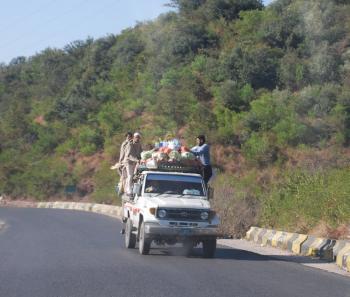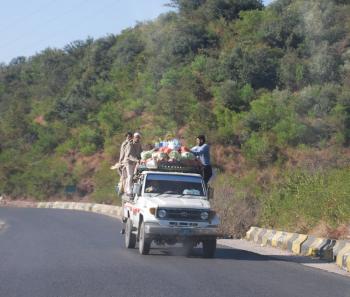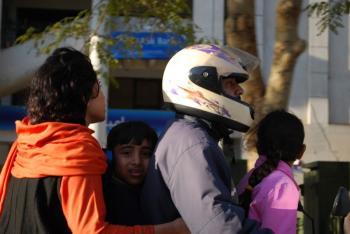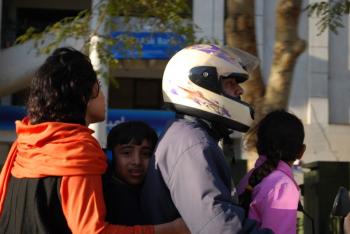Driving in Pakistan: Between New and Old
Pakistan traffic laws have been rarely enforced in the past, but seat belts have become law in the past three years. To say the least, driving in Pakistan is an adventure for a foreigner.
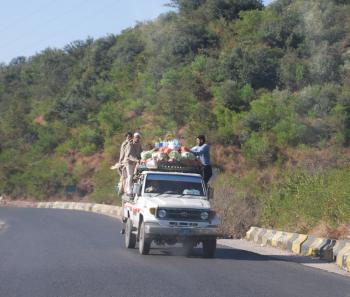
FAMILY OUTING: A family of four riding a motorcycle to run errands around Islamabad, Pakistan. Families of four or more on motorcycles are a very common sight. Masooma Haq/ The Epoch Times
|Updated:

